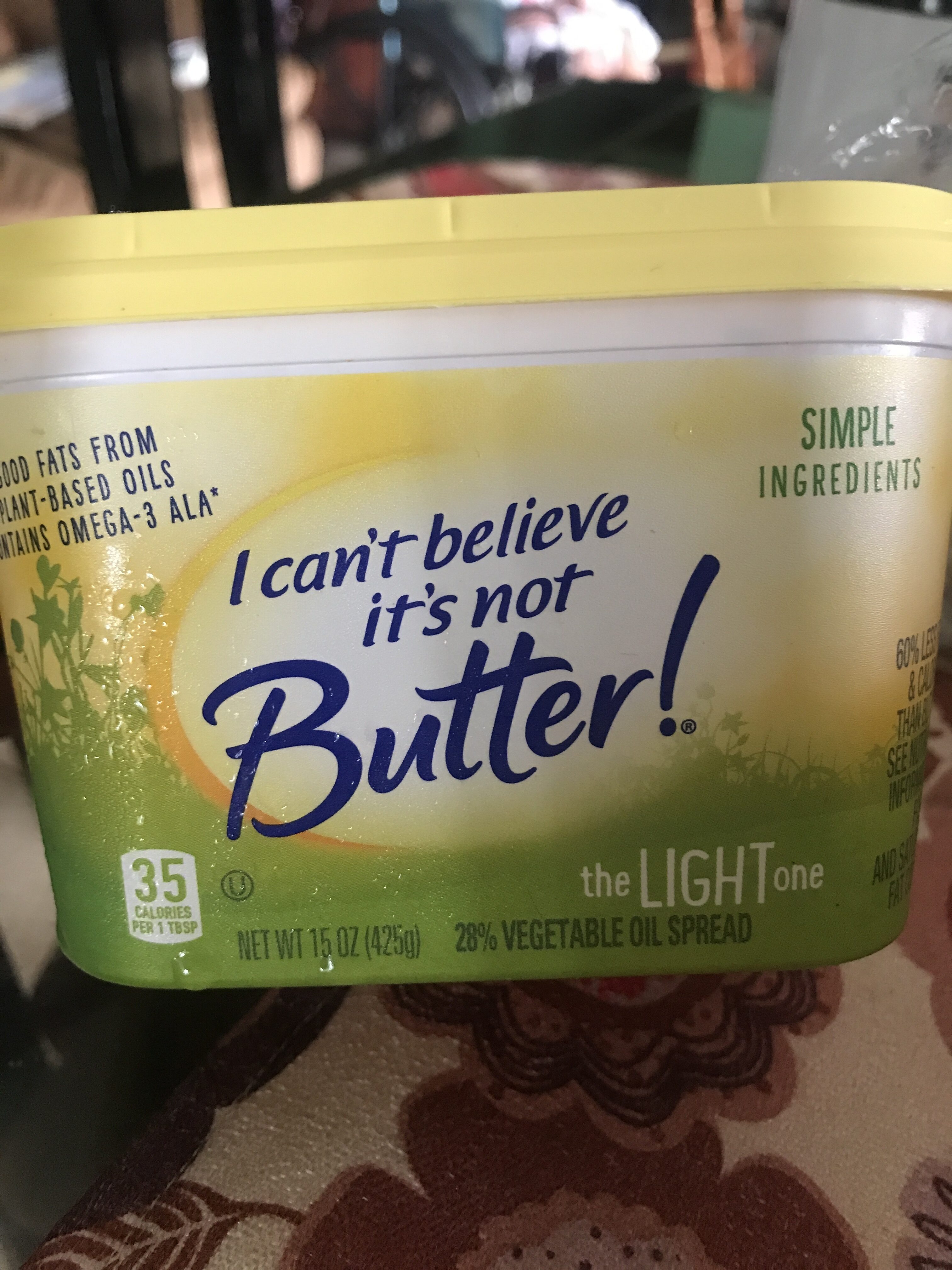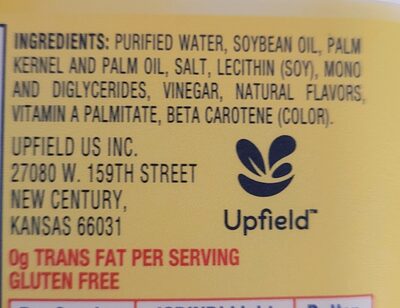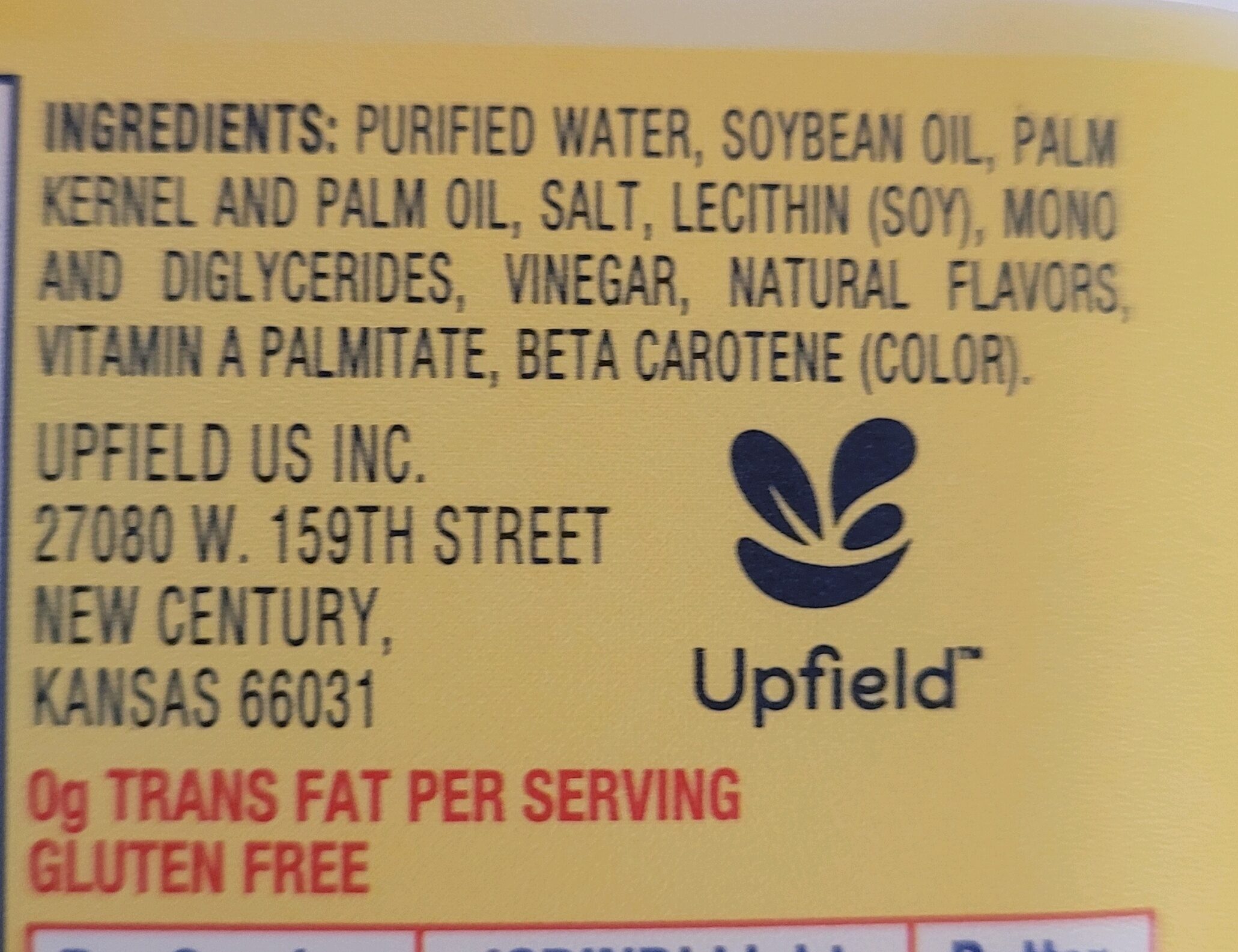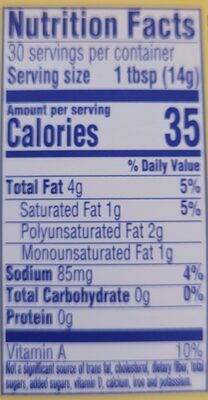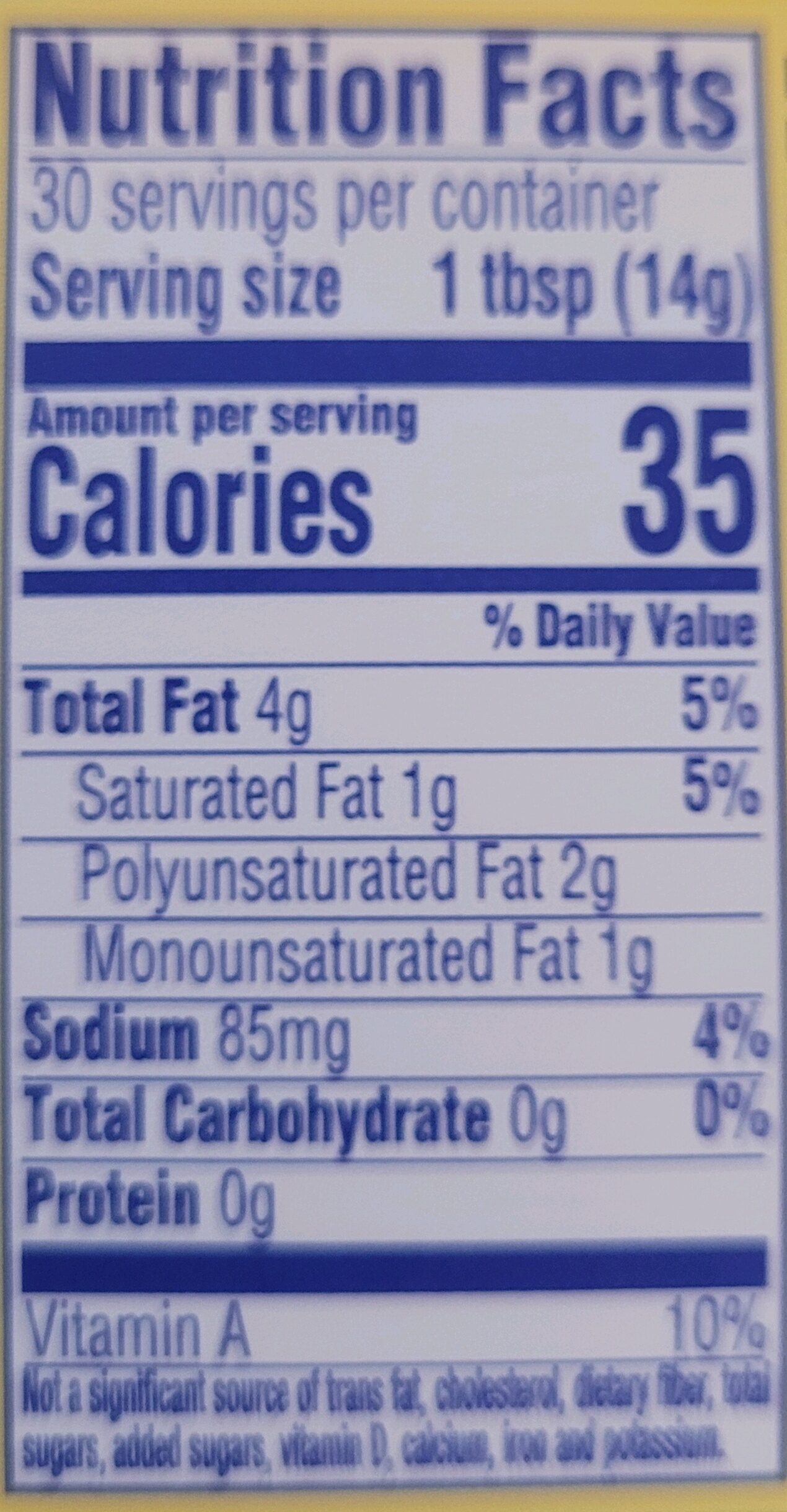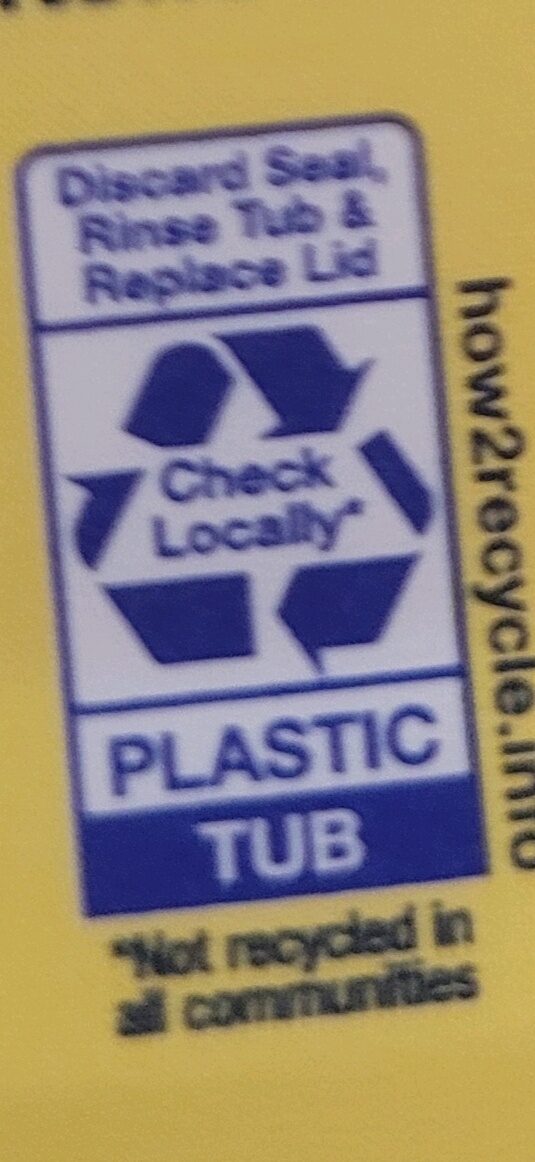28% vegetable oil spread - I Can'T Believe It's Not Butter - 15 oz (425 g)
This product page is not complete. You can help to complete it by editing it and adding more data from the photos we have, or by taking more photos using the app for Android or iPhone/iPad. Thank you!
×
Barcode: 0040600387187 (EAN / EAN-13) 040600387187 (UPC / UPC-A)
Quantity: 15 oz (425 g)
Brands: I Can'T Believe It's Not Butter, Unilever
Brand owner: Lipton
Categories: Fats, Imitation butter spread
Labels, certifications, awards: No gluten, No artificial preservatives, Keep refrigerated
Countries where sold: United States
Matching with your preferences
Report a problem
Data sources
Product added on by usda-ndb-import
Last edit of product page on by inf.
Product page also edited by artisticdweller9, openfoodfacts-contributors, org-database-usda, toehead2001.
If the data is incomplete or incorrect, you can complete or correct it by editing this page.

